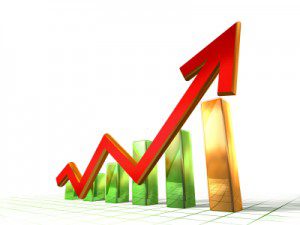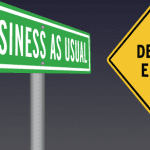
I’m not an economist, but am fascinated by conversations about economics. The reality is that we all live within economies, and yet rarely reflect on the morality of these systems within which we live.
Here are some of my reflections on the relationship between economics and virtue as I address this question: Are markets moral?
Healthy Cultures Included Healthy Economies
I would argue that healthy cultures are characterized in part by healthy economies. While most individuals quickly associate economies with transacted goods and services, the heart of economic systems is relational in nature—“the incredible social networks that capital both creates and depends upon.” Economies are the relational context within which we serve one another and contribute to human flourishing.
Healthy Economies Depend on a Healthy Environment or Culture
But one of the key challenges to healthy economies and markets is the environment or ecology that surrounds the economies or markets. If the surrounding ecology is healthy, this typically translates into a healthy economy. Conversely, if the surrounding ecology is unhealthy, this typically translates into a challenged and unhealthy economy.
Daniel Finn puts it this way: “An awareness of the interplay of markets and their contexts is critical for understanding under what conditions the outcomes of voluntary interactions of individuals and businesses in the market will be considered just.” Finn sees four dimensions the “context” or ecology surrounding economies:
- The Construction of Markets by Government (markets being properly defined by law)
- The Provision of Essential Goods and Services
- The Presence of Morality among Individuals and Groups
- The Existence of a Vibrant Civil Society
Depending on That which Markets Cannot Create
To answer the question of whether markets are moral therefore requires us to look outside economic markets. Markets depend on forces—such as individual and group morality—that markets themselves are not able to produce.
On this point William McGurn notes that the economy “depends on virtues—self-restraint, honesty, courage, diligence, the willingness to defer gratification—that it cannot itself create.” Restating it—healthy economy is dependent on something that the economy itself cannot produce.
Moral Markets Surrounded by Multiple Sectors
In light of such arguments by Finn and McGurn, health and morality of economic markets are dependent on the health and morality of the surrounding culture and ecology. As someone working to train leaders especially in the non-profit and church realms, I feel the need to leaders in these sectors to better understand their contribution to healthy economies and healthy cultures.
Such leaders play an important role in nurturing this dimension of virtue—virtue that serves as the social or spiritual capital upon which healthy economies are dependent. Just as the business and government sectors play vital roles, the non-profit and religious sectors also play a key role in nurturing healthy economies and the virtue upon which healthy markets may function.
Because of the power of healthy economies to contribute to human flourishing, it is vital that the people of God in religious sectors to engage in theological reflection and practical conversation that will help contribute to the social and spiritual capital upon which the incredible social network of the economy may flourish.
Virtues and Leadership
Though not specifically dealing with economics, for those wanting to engage the importance of virtue in leadership a bit more, I recommend you take a look at an article Jim Lanctot and I wrote for the International Journal of Leadership Studies entitled Character and Leadership: Situating Servant Leadership in a Proposed Virtues Framework.
The Moral Market and You
It is easy to look around and feel powerless to affect the economy in a positive and healthy manner. Drawing on the insights of William McGurn and others, perhaps a great first and best place to start is with your closest sphere of influence.
- Are you working to nurture virtue and morality within your own life and the life of those closest to you (children, family friends)?
- Are you using your place in the market as a voice and presence to help create what the market itself cannot create?
- Are you engaging in your work and market activity with responsible action, a spirit of value creation (giving more than you take), and commitment to steward your gifts and talents in a way that productive contributes to the flourishing of the world around you?
Such action at the personal and local level leaves a powerful ripple in the markets and economies of which you are part.
So, are markets moral? It depends on the surrounding environment, which means it also depends on you. Let’s be a force for positive and healthy economic flourishing within our sphere of influence.












